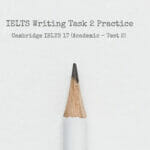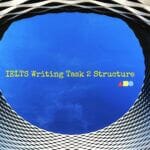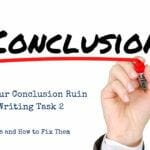1. Why are spelling mistakes important in IELTS writing task 2?
Spelling mistakes are important in IELTS Writing Task 2 because they can impact your overall score. One of the four assessment criteria for IELTS Writing is Lexical Resource, which evaluates your range of vocabulary, word choice, and spelling accuracy. Spelling mistakes can lower your score in this area, as they may indicate a limited vocabulary or lack of attention to detail.
To achieve a higher score in IELTS Writing Task 2, it’s essential to minimize spelling mistakes by improving your vocabulary, practicing your writing, and carefully proofreading your work before submission.
2. How to avoid making spelling mistakes in IELTS Writing Task 2?
To avoid making spelling mistakes in IELTS Writing Task 2, follow these tips:
Improve your vocabulary: Regularly practice reading and writing to expand your vocabulary and become familiar with the correct spellings of commonly used words.
Practice spelling: Make a list of words you often misspell and practice writing them correctly. Incorporate these words into sentences to reinforce proper spelling.
Use mnemonic devices: Create memory aids, such as acronyms or associations, to help you remember tricky spellings.
Proofread carefully: After completing your essay, take time to carefully proofread your work. Read it aloud and pay attention to each word, looking for any spelling errors.
Check homophones: Be cautious with homophones (words that sound the same but have different meanings and spellings), such as “there,” “their,” and “they’re.” Ensure you’re using the correct word with the appropriate spelling.
Break down complex words: For longer or more complicated words, break them down into smaller parts (syllables) and spell each part correctly.
Practice under timed conditions: Regularly practice writing essays within the time constraints of the IELTS exam. This helps you become more comfortable and accurate when writing under pressure.
By applying these strategies, you can reduce spelling mistakes and improve your overall performance in the IELTS Writing Task 2.
3. What is the best self-study practice to improve my spelling mistakes in writing?
The best self-study practice to improve your spelling mistakes in writing involves a combination of strategies:
Read widely: Reading a variety of materials, such as books, newspapers, and articles, exposes you to correct spelling and helps you become familiar with words in context.
Maintain a vocabulary journal: When you come across new or challenging words, write them down in a journal. Note their meanings, usage, and correct spellings. Review the journal regularly to reinforce your learning.
Practice writing: Regularly write essays, articles, or even daily journal entries to practice using the words you’ve learned. This helps you internalize the correct spelling and become more confident in your writing.
Use flashcards: Create flashcards for words you struggle with, including their correct spellings and meanings. Review the flashcards regularly to help commit the words to memory.
Test yourself: Regularly quiz yourself on the spellings of words you find challenging. You can do this by covering the correct spelling and attempting to write the word from memory.
Learn spelling rules: Familiarize yourself with common spelling rules and patterns in English, such as “i before e, except after c” or adding “s” to make nouns plural.
Focus on homophones: Pay special attention to homophones—words that sound the same but have different spellings and meanings (e.g., “its” and “it’s”). Practice using them in context to ensure you understand their proper usage.
Proofread your work: After writing, carefully proofread your work, focusing on spelling. This helps you identify recurring mistakes and learn from them.
Use online tools: Utilize online resources, such as spelling games, quizzes, or tools like Grammarly, to help you practice and improve your spelling skills.
By incorporating these strategies into your self-study routine, you can effectively improve your spelling and minimize mistakes in your writing.
4. List of 99 common spelling mistakes found in IELTS Writing Task 2
Here are 99 common spelling mistakes found in IELTS Writing Task 2 essays and their correct spellings:
- acheive -> achieve
- adress -> address
- advertisment -> advertisement
- affect -> effect (when used as a noun)
- arguement -> argument
- assasination -> assassination
- becouse -> because
- begining -> beginning
- beleive -> believe
- benifit -> benefit
- buisness -> business
- calender -> calendar
- cant -> can’t
- carreer -> career
- categorey -> category
- ceasar -> Caesar
- changable -> changeable
- colledge -> college
- comittee -> committee
- comparision -> comparison
- competant -> competent
- concious -> conscious
- critisism -> criticism
- definately -> definitely
- descrimination -> discrimination
- developement -> development
- diferent -> different
- dificult -> difficult
- disapoint -> disappoint
- dissagree -> disagree
- ecstacy -> ecstasy
- efect -> effect (when used as a verb)
- embarass -> embarrass
- enviroment -> environment
- existance -> existence
- familier -> familiar
- finaly -> finally
- finacial -> financial
- goverment -> government
- grammer -> grammar
- harrass -> harass
- heigth -> height
- hierarcy -> hierarchy
- ignor -> ignore
- imediate -> immediate
- independant -> independent
- intrest -> interest
- knowlege -> knowledge
- learnig -> learning
- leasure -> leisure
- liason -> liaison
- lollypop -> lollipop
- maintanance -> maintenance
- managment -> management
- mispell -> misspell
- neccessary -> necessary
- oportunity -> opportunity
- overwelming -> overwhelming
- paralell -> parallel
- parilament -> parliament
- perseption -> perception
- persistance -> persistence
- personel -> personnel
- possesion -> possession
- preceive -> perceive
- privelege -> privilege
- proffesional -> professional
- pronounciation -> pronunciation
- publicaly -> publicly
- recieve -> receive
- recomend -> recommend
- referance -> reference
- reffering -> referring
- religous -> religious
- rememberance -> remembrance
- responce -> response
- resposibility -> responsibility
- secrate -> secret
- seperate -> separate
- similiar -> similar
- strenght -> strength
- succesful -> successful
- supercede -> supersede
- suroundings -> surrounding
- temperary -> temporary
- tommorow -> tomorrow
- unfortunatly -> unfortunately
- unnecessery -> unnecessary
- unscrupelous -> unscrupulous
- upmost -> utmost
- vaccuum -> vacuum
- vechile -> vehicle
- wether -> whether
- withold -> withhold
- writting -> writing
- accomodate -> accommodate
- acount -> account
- acheivement -> achievement
- apparantly -> apparently





0 Comments